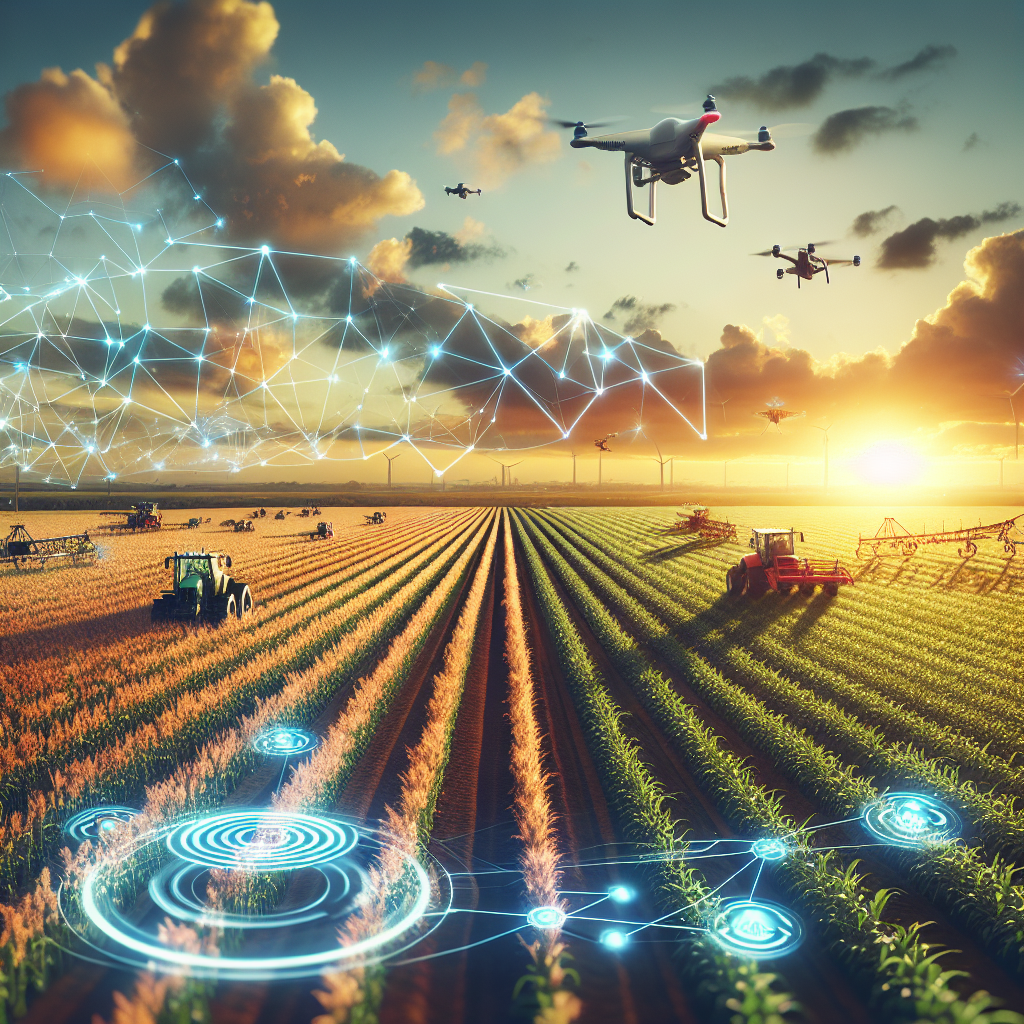AI Technologies for Supply Chain Optimization in Agriculture
In recent years, the agriculture industry has been undergoing a digital transformation driven by advancements in technology. One of the key areas where technology is making a significant impact is supply chain optimization. AI technologies are being used to streamline and improve various aspects of the supply chain in agriculture, from production to distribution. In this article, we will explore how AI technologies are being utilized for supply chain optimization in agriculture, their benefits, and their potential to revolutionize the industry.
AI Technologies in Agriculture Supply Chain Optimization
AI technologies, such as machine learning, natural language processing, and computer vision, are being used to optimize various aspects of the supply chain in agriculture. These technologies can analyze large amounts of data, identify patterns, and make predictions to improve efficiency and reduce costs. Here are some ways AI technologies are being leveraged for supply chain optimization in agriculture:
1. Demand forecasting: AI algorithms can analyze historical sales data, market trends, weather patterns, and other factors to accurately predict future demand for agricultural products. This enables farmers and suppliers to better plan production, transportation, and storage to meet demand and avoid overstocking or understocking.
2. Inventory management: AI technologies can optimize inventory levels by analyzing data on supply chain operations, sales, and market demand. By predicting when and how much inventory is needed, AI can help reduce stockouts, minimize carrying costs, and improve overall efficiency in the supply chain.
3. Route optimization: AI algorithms can optimize transportation routes for the delivery of agricultural products to reduce fuel consumption, transportation costs, and delivery times. By considering factors such as traffic conditions, weather, and load capacity, AI can help optimize routes to maximize efficiency and minimize environmental impact.
4. Quality control: AI technologies, such as computer vision and sensors, can be used to monitor and assess the quality of agricultural products throughout the supply chain. By analyzing images, videos, and sensor data, AI can detect defects, spoilage, and other issues early on, enabling timely interventions to maintain product quality and reduce waste.
5. Supplier management: AI technologies can analyze supplier performance data, market trends, and other factors to help farmers and suppliers identify and select the best suppliers for their needs. By optimizing supplier relationships, AI can improve product quality, reduce costs, and enhance overall supply chain performance.
Benefits of AI Technologies for Supply Chain Optimization in Agriculture
The use of AI technologies for supply chain optimization in agriculture offers numerous benefits, including:
1. Improved efficiency: AI technologies can automate and optimize various supply chain processes, reducing manual labor, errors, and inefficiencies. By streamlining operations, AI can help farmers and suppliers save time and resources while improving overall efficiency.
2. Cost savings: AI technologies can help reduce costs in the supply chain by optimizing inventory levels, transportation routes, and supplier relationships. By minimizing waste, stockouts, and other inefficiencies, AI can help farmers and suppliers save money and improve profitability.
3. Enhanced decision-making: AI technologies can analyze large amounts of data and provide insights and recommendations to help farmers and suppliers make better decisions. By leveraging AI, stakeholders in the agriculture supply chain can make more informed choices to optimize operations and drive growth.
4. Sustainability: AI technologies can help improve sustainability in the agriculture supply chain by optimizing transportation routes, reducing waste, and minimizing environmental impact. By promoting more efficient and eco-friendly practices, AI can help farmers and suppliers achieve their sustainability goals.
5. Competitive advantage: By adopting AI technologies for supply chain optimization, farmers and suppliers can gain a competitive edge in the market. By improving efficiency, reducing costs, and enhancing product quality, AI can help stakeholders differentiate themselves from competitors and attract customers.
Frequently Asked Questions (FAQs)
Q: What are some examples of AI technologies used for supply chain optimization in agriculture?
A: Some examples of AI technologies used in agriculture supply chain optimization include demand forecasting algorithms, inventory management systems, route optimization software, quality control solutions, and supplier management tools.
Q: How can AI technologies help improve inventory management in the agriculture supply chain?
A: AI technologies can help improve inventory management by analyzing data on supply chain operations, sales, and market demand to predict when and how much inventory is needed. By optimizing inventory levels, AI can help reduce stockouts, minimize carrying costs, and improve overall efficiency in the supply chain.
Q: What are the benefits of using AI technologies for supplier management in agriculture?
A: The benefits of using AI technologies for supplier management in agriculture include better supplier selection, improved product quality, reduced costs, and enhanced supply chain performance. By analyzing supplier performance data, market trends, and other factors, AI can help farmers and suppliers identify and select the best suppliers for their needs.
Q: How can AI technologies help enhance sustainability in the agriculture supply chain?
A: AI technologies can help enhance sustainability in the agriculture supply chain by optimizing transportation routes, reducing waste, and minimizing environmental impact. By promoting more efficient and eco-friendly practices, AI can help farmers and suppliers achieve their sustainability goals.
Q: What are some challenges associated with implementing AI technologies for supply chain optimization in agriculture?
A: Some challenges associated with implementing AI technologies for supply chain optimization in agriculture include data quality issues, lack of infrastructure, high upfront costs, and resistance to change. Overcoming these challenges requires careful planning, investment in technology and training, and collaboration among stakeholders in the supply chain.
In conclusion, AI technologies are playing a crucial role in optimizing the supply chain in agriculture. By leveraging machine learning, natural language processing, computer vision, and other AI technologies, farmers and suppliers can improve efficiency, reduce costs, and enhance sustainability in the agriculture supply chain. With the potential to revolutionize the industry, AI technologies offer numerous benefits and opportunities for stakeholders to drive growth and competitiveness. By embracing AI technologies, the agriculture industry can unlock new possibilities for supply chain optimization and achieve sustainable success in the digital age.

